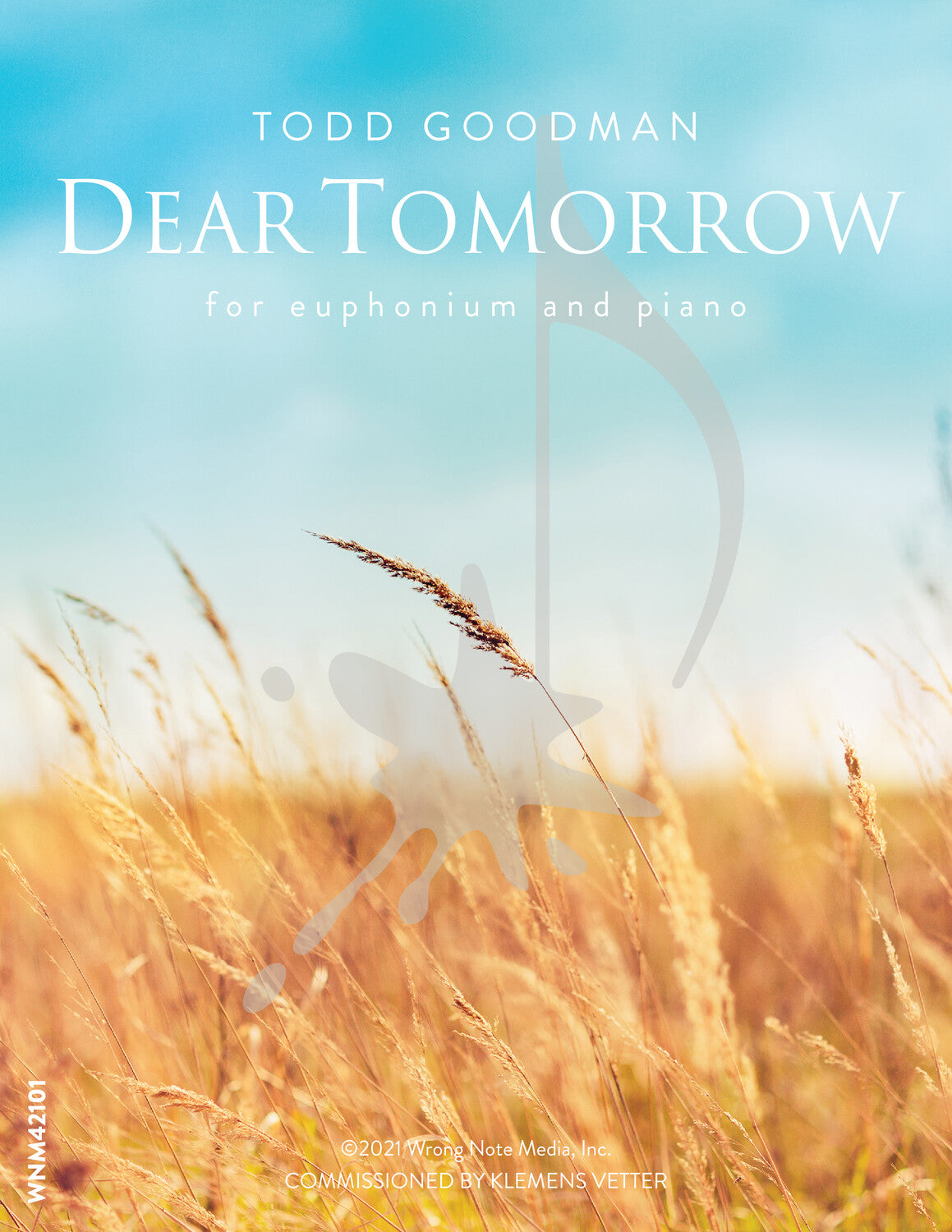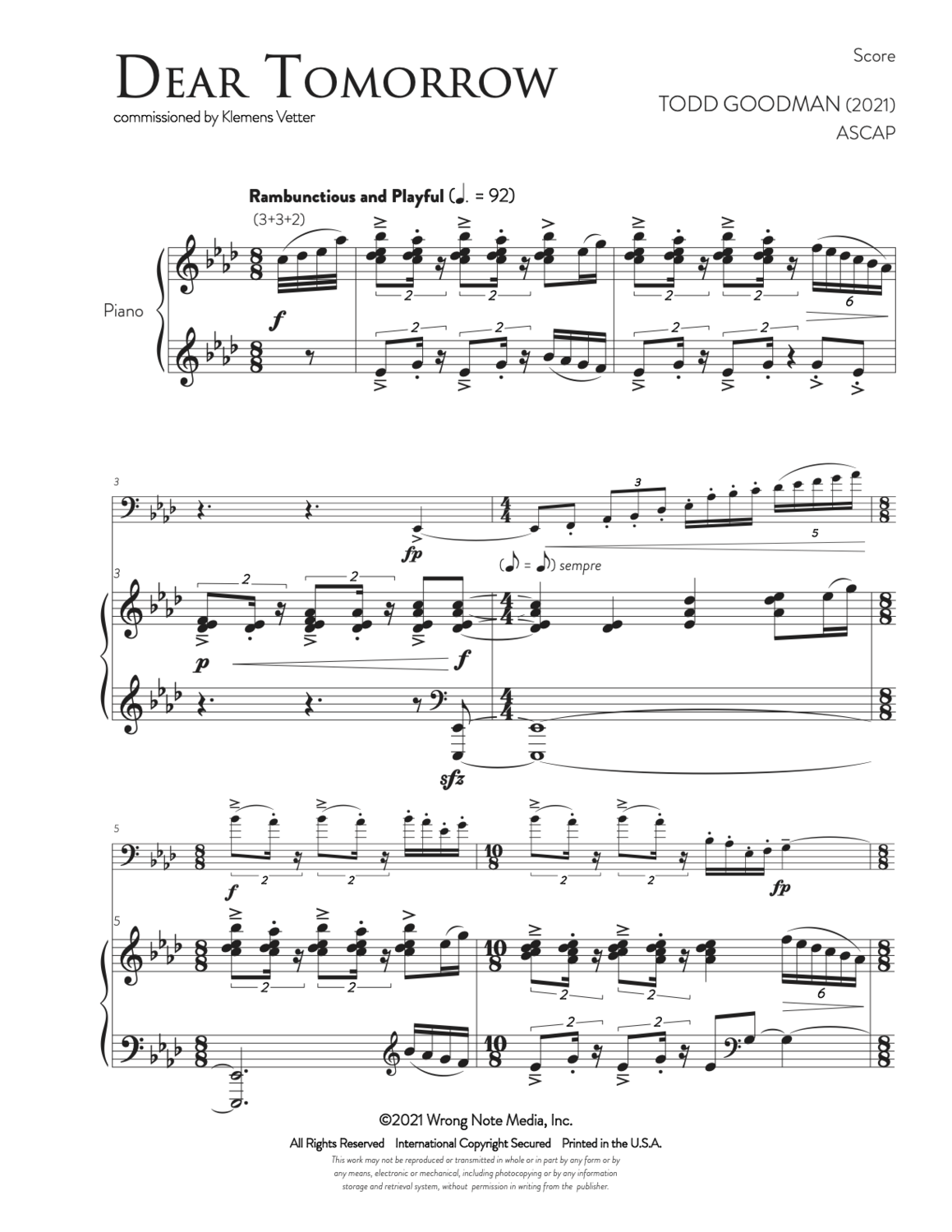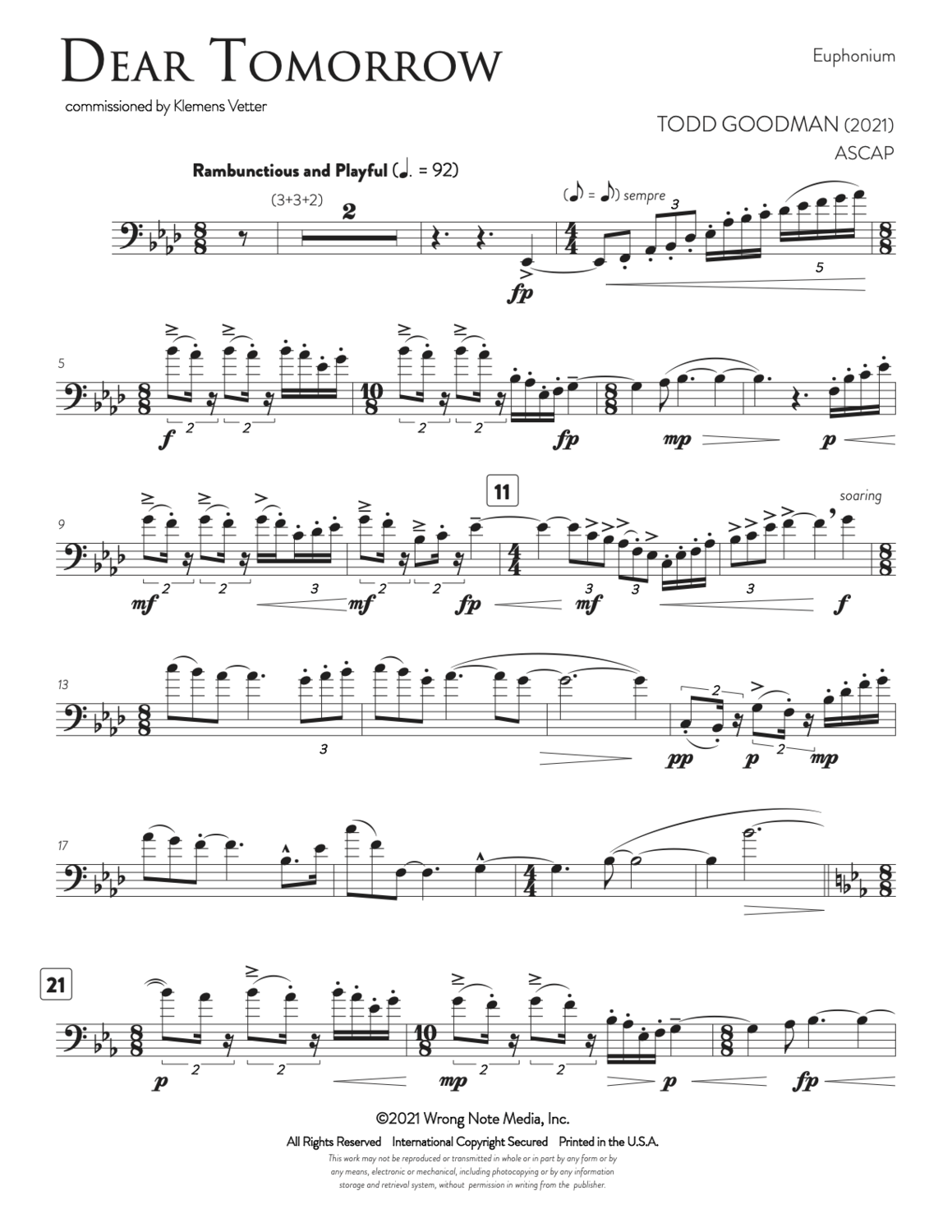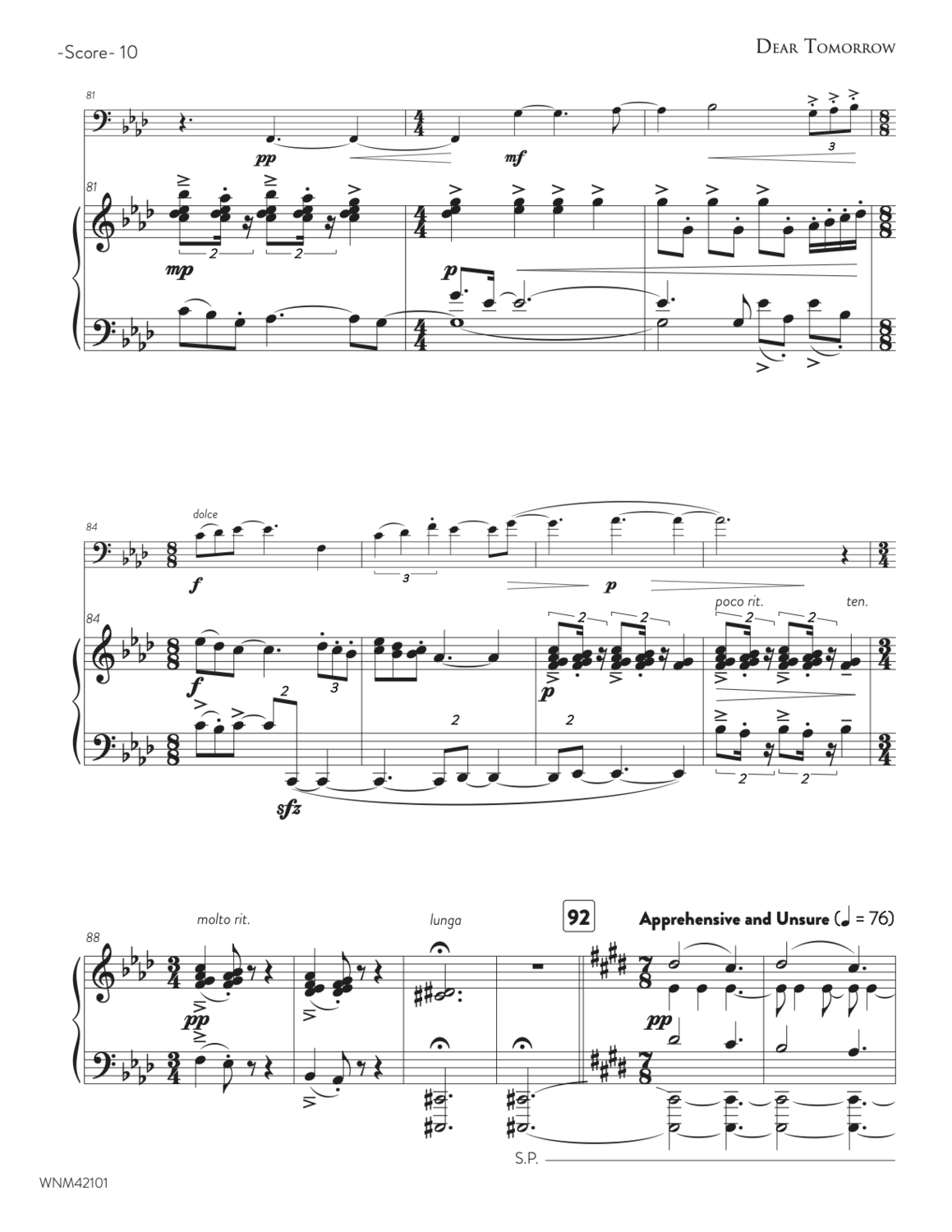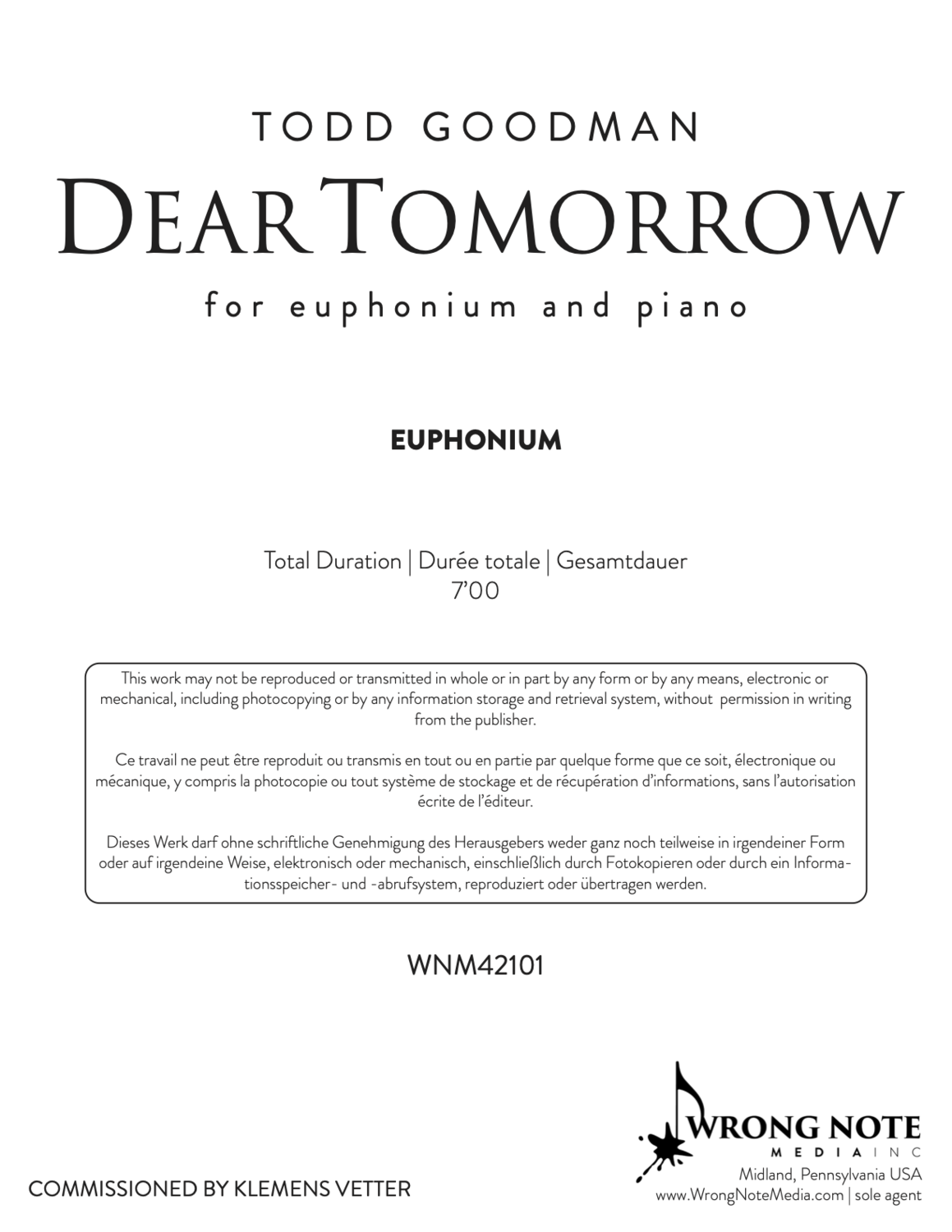Wrong Note Media
Goodman, Todd - Dear Tomorrow - DOWNLOAD
Goodman, Todd - Dear Tomorrow - DOWNLOAD
Couldn't load pickup availability
PROGRAM NOTES
The year 2020 was one of unique challenges. Together the world was in the midst of a global pandemic, fighting as one people to subdue and eradicate a microscopic enemy that none of us could actually see. Yet by ourselves we were all struggling in our own individualized way with an enemy that we could all very much feel. While one enemy could make us physically sick, the other made us feel as if the world had indeed come crashing down around us. Many of us went from having robust schedules of performances, commissions, and recordings, to a schedule of nothing in a matter of days. When the reality of the long-term effects of those lockdowns, quarantines, and mandated shut downs hit, the emotional effect was devastating—at least to me. Everything was cancelled. Everything that I was working toward as a composer was no longer, or, so it seemed at the time. It was extremely depressing and it put me into the longest dry period of my compositional career.It seemed like there wasn’t much worth writing about, so I didn’t.
After ten months of not putting a single dot onto paper, I got a message from Klemens Vetter. About two years prior to that message, I had reached out to Klemens because he came across my social media feed as a possible friend. I immediately got excited because I had recently discovered that my eighth great-grandfather was the German Baroque composer Nicolas Vetter, student of Johann Pachelbel, and I thought I had found a musical relative! We still do not know for sure if we are related, but it connected us as colleagues none-the-less. Klemens asked me to write a new work for him for a recording project happening in the summer of 2021, and that was all it took—a tangible project to get me to “splat” ink onto paper again. So as quickly as the dry spell hit, it vanished.
Dear Tomorrow is a musical letter that I wrote to my isolated pandemic self. It is in three parts. First, it opens with an energetic, uneven pulse. It is the nervous excitement I felt in starting to write again. I was excited, but I was also totally unsure if I still was able to do it anymore. Did my creative energy dissipate as had my other excitement during our long, arduous spell in lockdown? This nervous energy is interrupted by a lyrical melody, reminding myself that things are going to get better. The uneven pulse is then stated again, slower, but this time with an even pulse over it. As the two groove together, the euphonium continues to sing and develop its melody of hope. In part two, the marriage of uneven and even continues as a beautiful aria unfolds throughout both the soloist and the accompaniment. Eventually the uneven pulse takes over and washes over the piece. Lastly, the piece closes with a return to the opening idea, but this time with optimism, reminding me that with hope, all things are possible.
Todd Goodman’s Dear Tomorrow was commissioned by Klemens Vetter.
